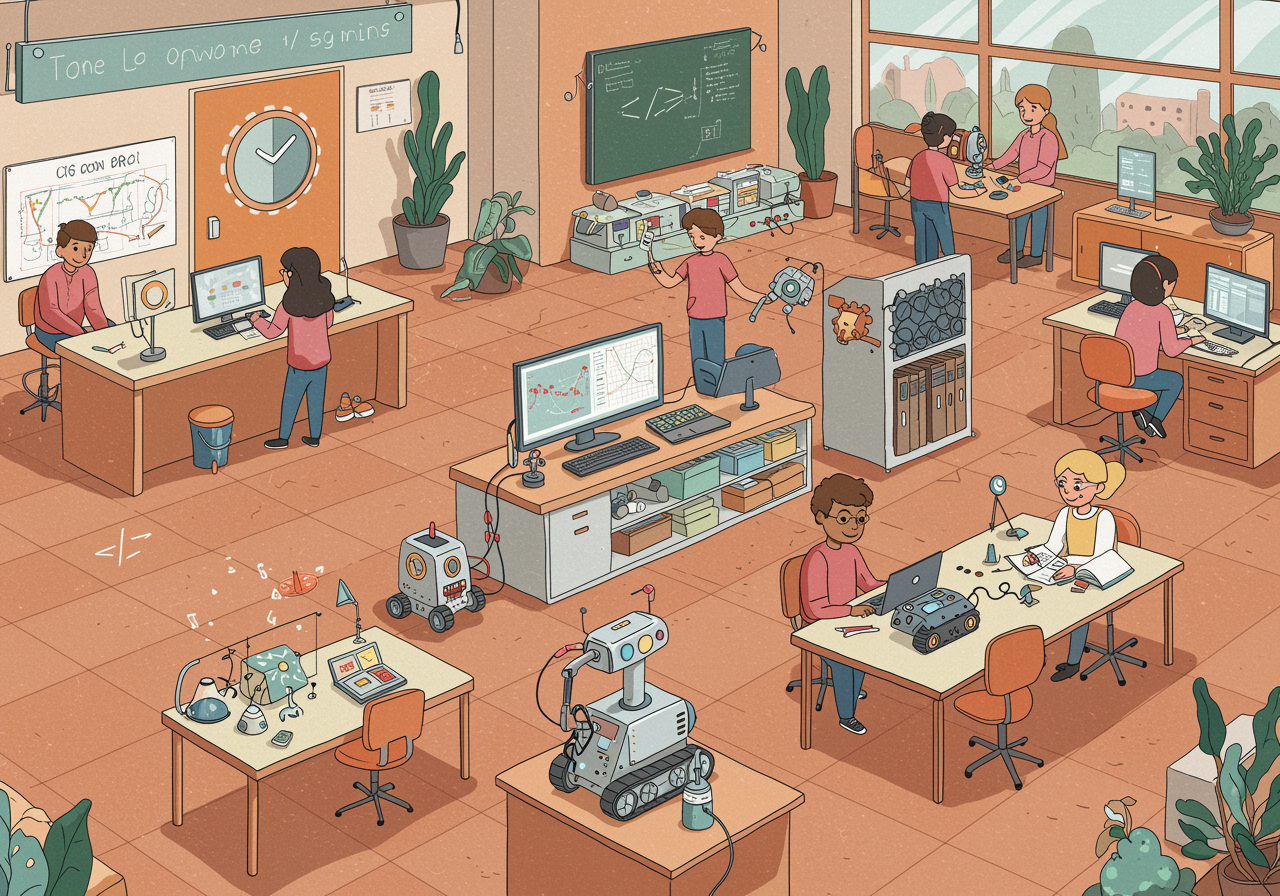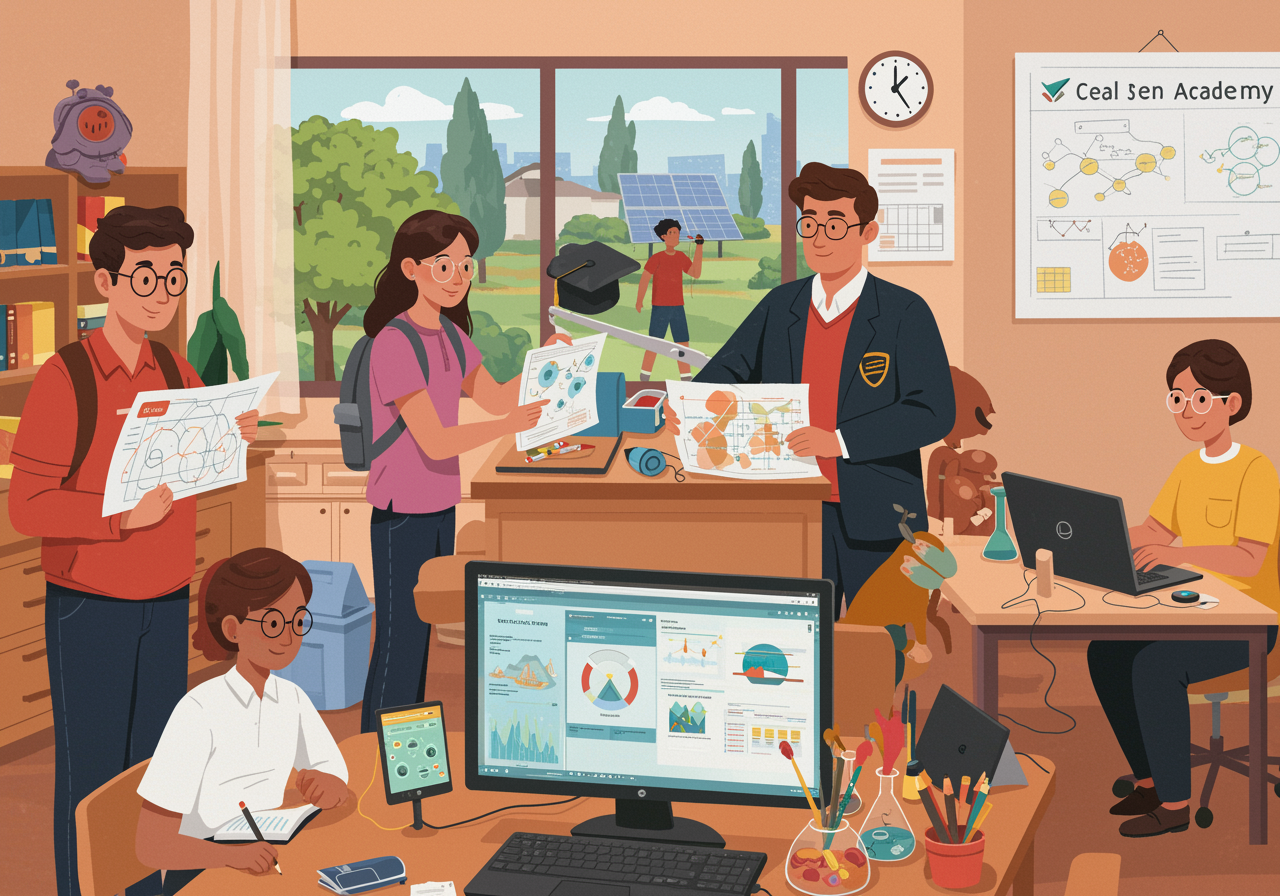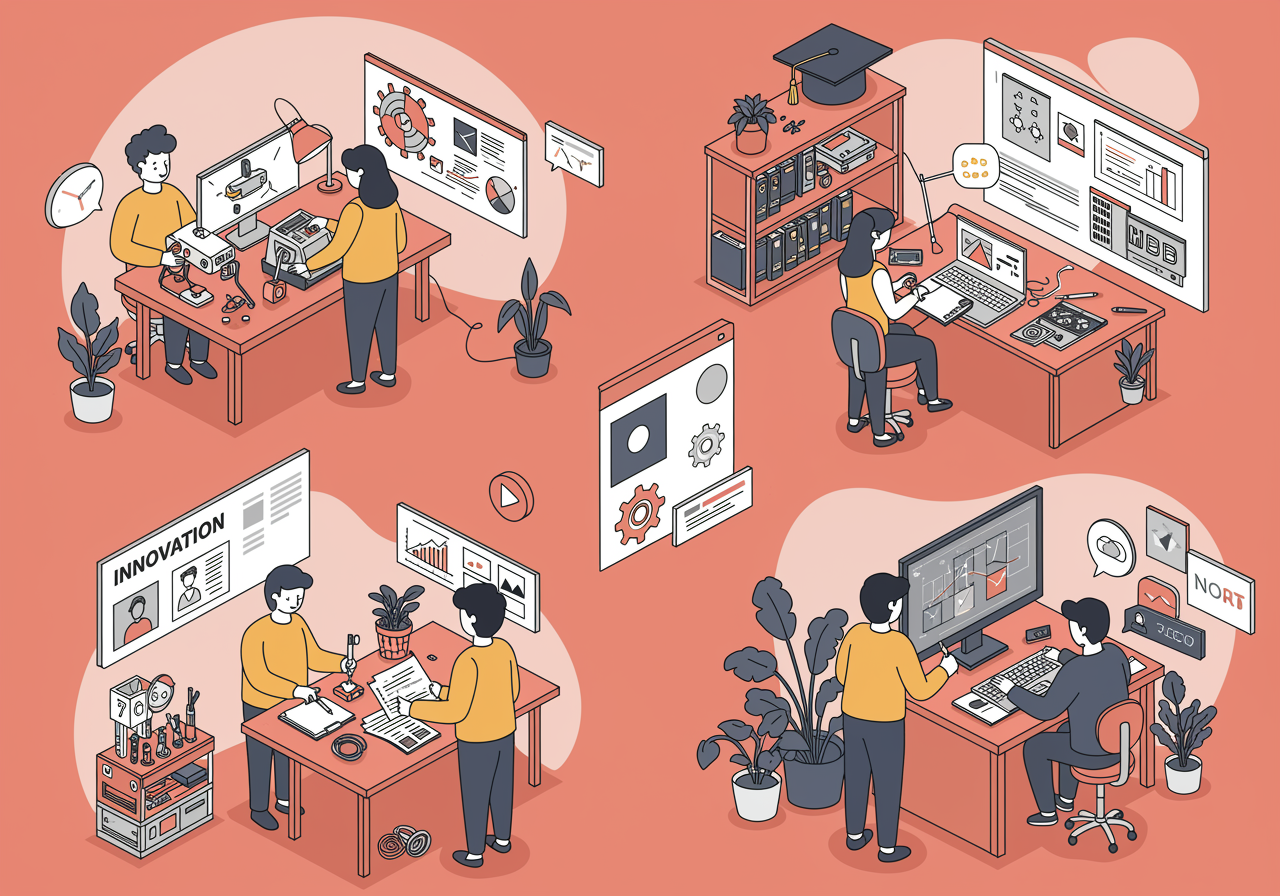Schools That Change Everything: How New Learning Adventures Transform Communities
Discover how innovative schools like Rise STEM Academy are creating amazing opportunities and bringing communities together
Explore how groundbreaking schools are reshaping neighborhoods, opening doors for students, and proving that learning can be an exciting adventure that benefits everyone.
Overview
Imagine if school felt more like an exciting laboratory, maker space, or innovation hub than a traditional classroom. New schools like Rise STEM Academy are doing exactly that – they're rethinking what education can look like and how it connects to real life. These schools aren't just changing how kids learn; they're transforming entire communities by creating partnerships with local businesses, bringing families together, and giving students skills they can use right now. When schools become community hubs for innovation and creativity, amazing things happen for everyone involved.

Understand in 30 Seconds
Get up to speed quickly
- What Makes These Schools Different: Schools like Rise STEM Academy focus on hands-on learning, real-world projects, and teaching skills like coding, engineering, and problem-solving through doing, not just reading about it.
- Community Partnerships: These schools team up with local businesses, hospitals, tech companies, and organizations to give students real internships, mentors, and projects that actually matter to their neighborhoods.
- New Opportunities for Students: Students can graduate with industry certifications, college credits, startup experience, or even job offers – giving them a head start on their futures.
- Ripple Effects: When innovative schools succeed, they attract new families and businesses to the area, create jobs, and inspire other schools to try new approaches to learning.
Real Life Scenario
Situations you can relate to
Think about your neighborhood – what if your school became the coolest place in town? Picture this: students at a new STEM academy are building apps to help local restaurants manage orders, designing solar panels for community centers, or creating robots that help elderly neighbors with daily tasks. Local business owners start visiting as guest teachers and mentors. Parents get excited about volunteering because the projects are actually fun and meaningful. The school becomes a hub where community members come to learn new skills too – maybe coding classes for adults or maker workshops on weekends. Suddenly, the whole neighborhood feels more connected and innovative. Does this sound like something that could happen where you live?

Role Play
Spark a conversation with “what if” scenarios
What if you could design your dream school from scratch?
- Role play: Take turns describing what subjects you'd teach, what the classrooms would look like, and how students would spend their days. Would there be a robotics lab? A recording studio? A greenhouse?
What if your school partnered with your favorite local business?
- Role play: Pretend one of you is a business owner and the other is a student. Negotiate what kind of project you could work on together – maybe designing a new menu, creating a website, or solving a real problem the business faces.
What if you had to pitch your school innovation idea to the mayor?
- Role play: One person plays the mayor, the other presents their idea for how a new type of school could make the community better. Practice making your case with specific examples and benefits.
FAQs
Frequently asked questions people want to know
Are these new schools harder than regular schools?
They're different, not necessarily harder. Students often find them more engaging because they're working on real projects they care about, which can actually make learning feel easier and more fun.
Do students still learn regular subjects like math and English?
Absolutely! They just learn them in more hands-on ways. For example, students might learn math through engineering projects or improve writing by creating content for local businesses.
What if there isn't a school like this in our area?
You can still get involved! Look for STEM programs, maker spaces, coding clubs, or volunteer opportunities that give you similar hands-on learning experiences in your community.
Examples in the Wild
See how this works day to day
- High Tech High in San Diego has students work on real community projects, like designing solutions for local environmental issues, and showcases their work in public exhibitions (High Tech High Schools Network)
- New Tech Network schools across the US have students graduate with industry certifications in fields like healthcare, IT, and advanced manufacturing alongside their high school diplomas (New Tech Network)
- P-TECH schools (Pathways in Technology Early College High Schools) partner with companies like IBM to offer students both high school diplomas and associate degrees in just six years (P-TECH Education Model)
- Manor New Technology High School in Texas saw their community's economic development improve as tech companies moved to the area specifically because of the skilled graduates the school was producing (Manor Independent School District)
In Summary
What you should know before you start
- Innovative schools create real-world learning experiences that prepare students for actual careers and opportunities
- These schools build strong partnerships with local businesses and organizations, benefiting the entire community
- Students can graduate with valuable certifications, work experience, and connections that give them a head start
- When schools succeed in new ways, they often inspire positive changes throughout their neighborhoods and attract new opportunities
Pro-tip for Parents
You got this!
If your child seems excited about this topic, don't worry about whether your local schools offer these exact programs yet. Instead, focus on finding ways to bring hands-on, real-world learning into their current experience. Look for local maker spaces, coding clubs, volunteer opportunities, or even simple projects you can do together at home. The key is helping them see how what they're learning connects to solving real problems and making a difference in their community.

Keep an Eye Out For
Find these examples in everyday life
- News about new school programs or partnerships in your district – these often start small but can grow into bigger innovations
- Local businesses offering student internships, mentorship programs, or educational partnerships
- Community maker spaces, innovation labs, or STEM centers that offer programs for teens
Explore Beyond
Look up these related research topics
- How technology is changing the way we work and what skills will be most valuable in the future
- The role of entrepreneurship and innovation in building stronger communities
- How different countries around the world are reinventing education and what we can learn from them